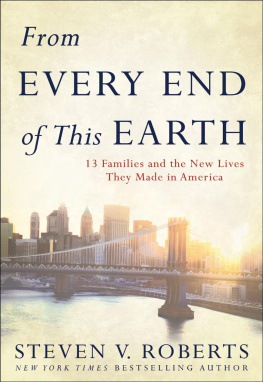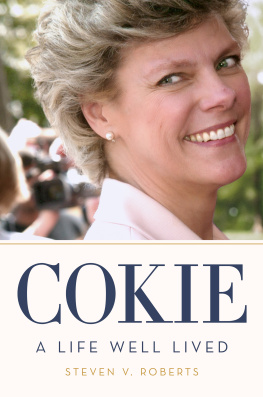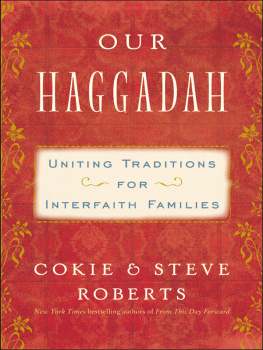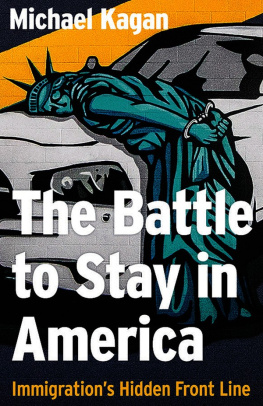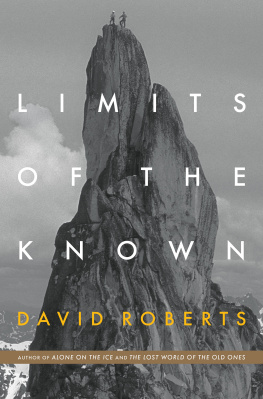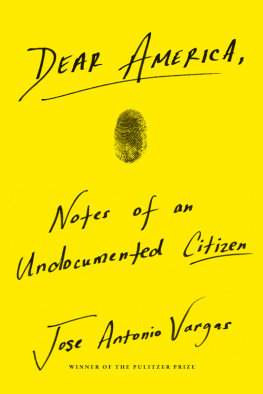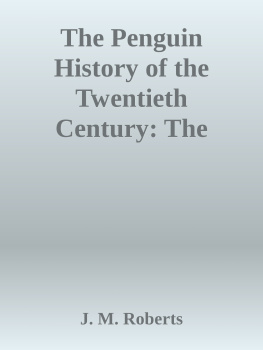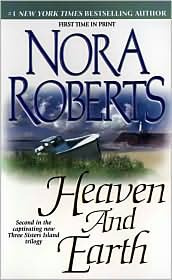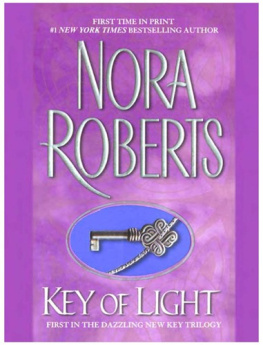As I listened to Barack Obamas inaugural address, I heard him say, We are a nation of Christians and Muslims, Jews and Hindus, and nonbelievers. We are shaped by every language and culture, drawn from every end of this earth. I knew then that I had a title for this book. I liked the lilt of his language, but more than that, I shared his sense of what makes America great. This countrys genius flows from its diversity. We know, said the new president, that our patchwork heritage is a strength, not a weakness. Or as Eddie Kamara Stanley of Sierra Leone puts it, Its the nation of nations, you can see every nation in America. But diversity only describes color, not character; ethnicity, not ingenuity. Over many generations, the immigrants who chose to come here, and were strong enough to complete the journey, were among the most ambitious, the most determined, the most resilient adventurers the Old World had to offer. The greatness of our nationmust be earned, said the new president, and building that greatness has never been for the fainthearted. Rather, he added, it has been the risk-takers, the doers, the makers of things who have led the way. For us they packed up their few worldly possessions and traveled across oceans in search of a new life. The fainthearted stayed behind.
This book is about the doers, the risk-takers, the makers of things that Obama describes. The president knows them well because his own father was an immigrant from Kenya, and his stepfather was from Indonesia. I know them well, too. All four of my grandparents came from the Pale of Settlement, areas on the western edge of the Russian empire where Jews were allowed to live in the nineteenth century. They were born between 1881 and 1892, and while they all described themselves as Russian, borders have shifted so often since then that their hometowns today are in three different countries: Poland, Belarus, and Lithuania. Both of my grandfathers were carpenters, makers of things, who settled in Bayonne, New Jersey. One lived with us, in a house he had built himself, while my other grandparents were three blocks away. I thought that everybody grew up that way, and indeed, most of my friends did. Our grandparents all had accents and our babysitters all were related. If our families werent Russian or Polish, they were Irish or Italian, with an occasional Czech or Ukrainian or Slovak thrown in. I grew up thinking WASPs were a tiny minority group.
Most of our relatives had fled a life of poverty or persecution in the Old Country and would not talk about the past; they wanted to leave all that behind and become American. But I was lucky. My Grandpa Abe used to tell me tales of his youth in Bialystok, a town that achieved a fleeting notoriety when Mel Brooks used the name Max Bialystok for the main character in his play The Producers . In fact Abe, like many immigrants, moved more than once, and spent his teenage years as a Zionist pioneer in Palestine, working on the first roads ever built in what is now Tel Aviv. He arrived in America on April 7, 1914, aboard a ship called the George Washington , which sailed from Bremen, a port on the North Sea. The manifest spells both of his names wrong (Awram Rogowski instead of Avram Rogowsky) and persistent mistakes like that have hampered the search for my familys records. On her birth certificate, my mother is listed as Dora Schaenbein, while in fact her name was Dorothy Schanbam. At her ninetieth birthday party I took note of that discrepancy and joked that perhaps we were celebrating the wrong woman.
This background left me with a lifelong interest in ethnicity and immigration. My previous book, My Fathers Houses , chronicled my familys arrival in the New World and the lives we made here. This book is really an update, the stories of thirteen families who are living the journey today that Grandpa Abe and my other ancestors made almost one hundred years ago. In a sense I have been working on this volume for my entire writing life. As a teenager, I had an after-school job on the Bayonne Times , the local daily, and one of my first assignments was to write about an migr artist who was decorating the walls of the Police Athletic League building, a dilapidated old place where I played basketball. When I eventually became a reporter on the city staff of the New York Times in 1965, I convinced the editors to let me do a series about the ethnic neighborhoods of New York. One favorite was Arthur Avenue, an old Italian section near the Bronx Zoo, and I remember coming back from that assignment with some great anecdotes, and a box of delicious cannolis from a local bakery. On weekends my wife and I occasionally roamed the Lower East Side, the district where many Eastern European Jews first settled in America. One favorite destination was Katzs deli on Houston Street, started by Russian immigrants in 1888 and famous for its slogan, Send a salami to your boy in the army!
My next assignment for the Times took us to Los Angeles in 1969, and while most reporters from eastern news outlets focused on the glamorous side of California, I was always more interested in the Armenians of Glendale than in the actresses of Hollywood. I wrote about farm towns like Kerman, where the Portuguese-American home was the center of social life. Or villages like Solvang, which still celebrates its Danish heritage. And I profiled old mining campsincluding one actually named Chinese Campwhere you could still sense the spirit of the immigrant laborers who built those historic settlements. I spent a lot of time in the Central Valley writing about Cesar Chavez and the United Farm Workers union, and I remember him describing how the grape growers were still defined by powerful ethnic loyalties. In fact, Chavez (a Mexican-American himself) told me he had to conduct three separate negotiations with the Armenian, Italian, and Yugoslav farmers. One man who could occasionally bridge those rivalries was Tony Coelho, a Portuguese-American congressman who once invited me to a lunch he held regularly at a Basque restaurant in his hometown of Fresno. For one meal, at least, the warring tribes of the valley would sit side by side at long family-style tables, but Coelhos peace-making had limits. When he tried to join the Hispanic caucus on Capitol Hill by invoking his Iberian heritage he was flatly rejected.
When I moved to Europe for the Times in 1974 and settled in Athens, I got to write about immigration from a different perspective. Many Greeks were deeply anti-American, because they thought Washington had sided with Turkey in their endless dispute over Cyprus. But their animosity was tempered by the fact that they all had cousins in Queens or Chicago. I often said that if you waded into a protest demonstration in front of the American embassy and announced that you were awarding six scholarships to Michigan State, the protesters would immediately drop their signs and sign their names. On one reporting trip to southern Greece I interviewed Stavroula and Paraskevas Kourtsounis, whose three children had all moved to Long Island. Their home village of Skoura was dying; all the young people had left. But like many immigrants, they still regularly sent back cash from America. One villager described the place as an old-age home with green dollars, and the stores in Sparta, the biggest town near Skoura, took dollars as readily as drachmas. Remittances were a sturdy pillar of the Greek economy and in every village it was common to see a black-clad yaya , or grandmother, return from the post office, furtively open an envelope, and slip a wad of greenbacks into her clothing. The American embassy told me that nineteen thousand recipients of Social Security payments had retired to Greece, which was a whole lot cheaper than Greenwich or Greenpoint. So many transplants had settled around Sparta that when their monthly checks arrived in the mail, the banks sent mobile vans to the surrounding villages to cash them. When I tracked down the Kourtsounis sons, Pete and Sam, to include them in this book, they graciously told me they had displayed my article about their parents on the wall of their diner for many years. Then Pete said a bit uncomfortably, Im surprised to hear from you. I thought youd begone by now. I assured him that Id been a very young man when I interviewed his parents.

